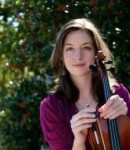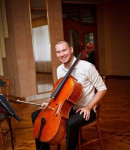Featured Cello Teachers In south

Alvaro B
Instruments: Piano, Guitar, Voice, Violin, Cello, Viola, Flute, Drums, Bass Guitar, Organ, Synthesizer, Harmonica, Fiddle, Latin Percussion
I am 31 years old and have been playing music since 14 years old. I play and teach guitar, bass guitar, piano, violin, cello and singing. Music is life. I've recorded more than 20 albums, and performed in many different places. I have been a teacher of kids and adults for more than 10 years in schools and in music institutes, and now I have plans of recording new material. Read More

Caitlin V
Instruments: Piano, Violin, Cello, Viola, Electric Violin
My goal as a Strings Instructor is to have my students be exposed to all the wonderful music that is out there in the world and to develop an appreciation for it. Some students haven't even decided what their favorite music is when they come to me. Students enjoy discovering music and it is my goal to guide them. I like to have students write out their goals as performers and musicians. Read More

Jessica B
Instruments: Voice, Cello, Trumpet, Flute, Clarinet, Euphonium, Tuba, Music
I will admit will full confidence that I am the type of teacher to keep it laid back and casual, but will not let my student stop giving me their full effort. If anything, they will be disappointing themself in the future, and I refuse to allow that to happen. If I do not make my student laugh in the first ten minutes of the lesson, then I have failed to make them comfortable for that lesson. Read More

Brian S
Instruments: Piano, Violin, Cello, Viola, Electric Violin, Fiddle, Double Bass
I have been teaching for about 10 years now, both privately and in various music lesson stores throughout the Tampa Bay area. I have taught students ranging from 5 to 60 years of age. My students have been accepted into Blake Performing Arts High School, All County Orchestras, Tampa Bay Youth Orchestras, Tampa Metropolitan Youth Orchestras, and even Florida's All State Orchestras. I have also been able to develop my students' abilities from being last in their orchestras to first chair in their music programs. Read More

Eduard T
Instruments: Cello
I have over 20 years of playing experience along with my Master's degree in Cello performance from the Ufa States Academy of Arts in Russia. I played as a member of the National Symphony Orchestra as well as in various ensembles and as a soloist. Read More

BBB Accredited
Don't just take our word for it. We hold the highest possible A+ rating from the nations foremost online reliability source: The BBB. Check out our A+ rating from the Better Business Bureau.